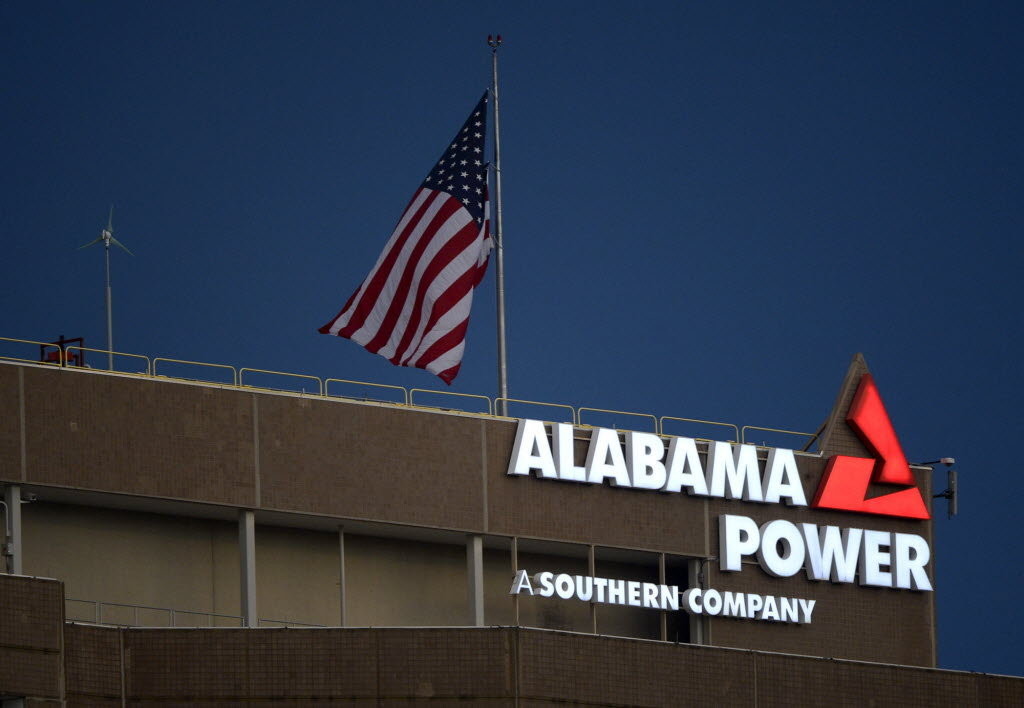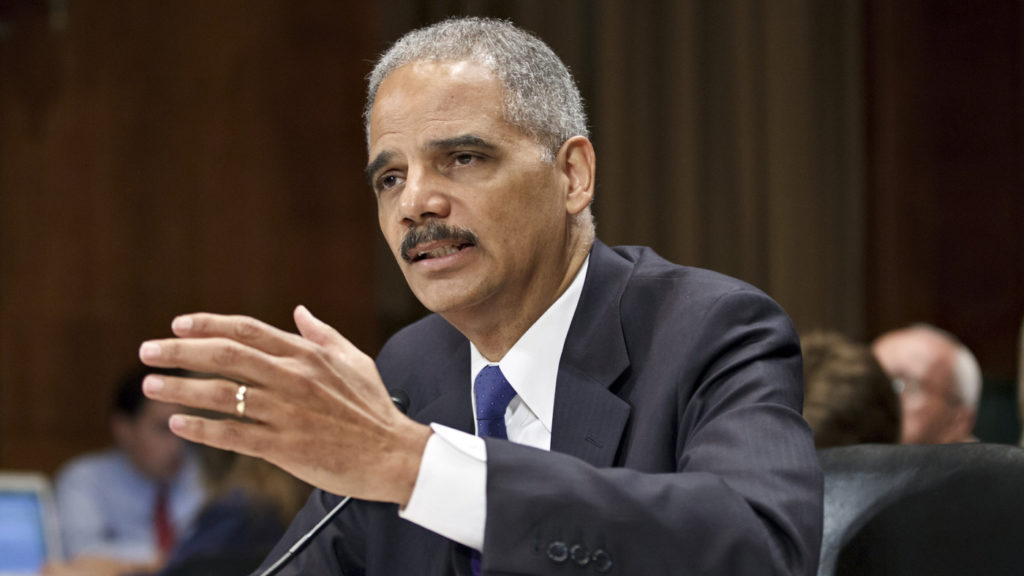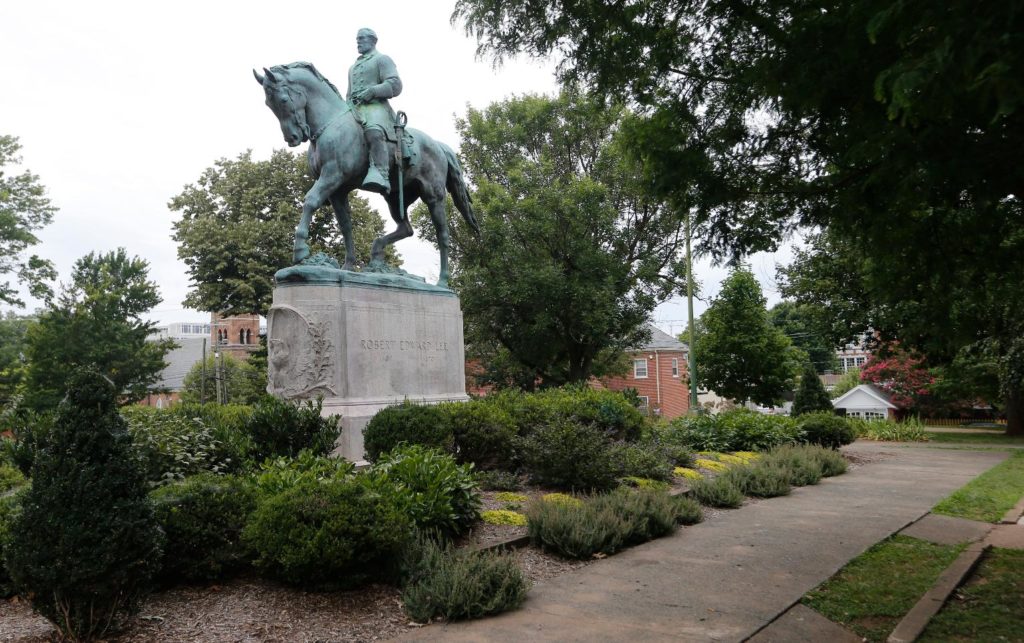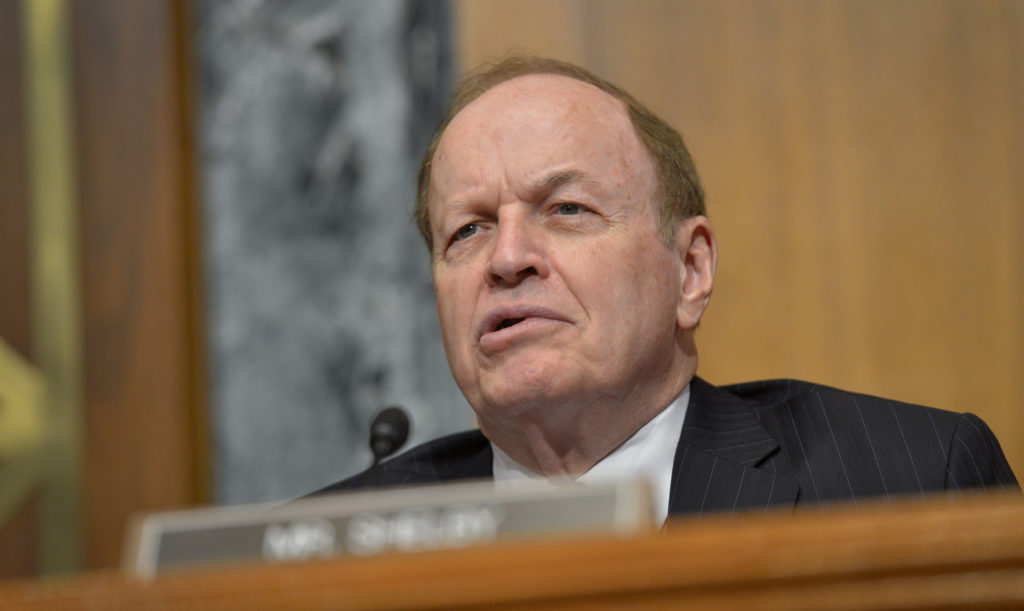Alabama among 2020’s worst states for young adults, ranks high for at-risk youth

Growing up can be hard — without a stable home, positive role models, and tools for success, many young Americans fall behind their peers and experience a rocky transition to adulthood. Today, about one in nine individuals between the ages of 16 and 24 are neither working nor attending school. The challenges of growing up are especially true in Alabama, where a new WalletHub study found the state to be 2020’s 7th worst state for young adults. The findings are part of the personal finance website’s latest report, 2020’s States with the Most At-Risk Youth. To determine the places where young adults are not faring as well as others in the same age group, WalletHub compared the 50 states and the District of Columbia across 16 key indicators of youth risk. Our data set ranges from share of disconnected youth to labor force participation rate among youth to youth poverty rate. Read on for our findings, insight into the future of America’s young population, and a full description of our methodology. At-risk youth in Alabama (1= most at risk; 25= avg.): 7th: % of disconnected youth 13th: % of youth without a high school diploma 24th: % of overweight and obese youth 12th: youth labor force participation rate 12th: youth poverty rate 25th: % of homeless youth Source: WalletHub
After years of effort Alabama issues midwife licenses for first time since 1976

The state of Alabama has issued its first licenses to out-of-hospital midwives since 1976. Al.com reports the newly-formed Alabama State Board of Midwifery on Friday approved the licensing of five certified professional midwives. It’s illegal to practice unlicensed midwifery in Alabama, and for decades, the lack of licensing effectively outlawed lay midwifery in the state. State lawmakers voted in 2017 to legalize midwifery, and the State Board of Midwifery began accepting license applications last year. Board member Kaycee Cavender says she’s been pleasantly surprised at the number of licensing applicants. According to the Facebook Page for the Alabama Midwives Alliance the first five Licensed Midwives were, ” Rebekah Myrick, Karen Brock, Tori Dennis, Stacey Cochran Bufkin and Layla Brown.” Certified professional midwives differ from certified nurse midwives, which are registered nurses who work in hospitals and medical clinics. Certified professional midwives are accredited through a testing and apprenticeship process and can attend low-risk births in out-of-hospital settings. The Associated Press contributed to this report, with permission.
Seven communities awarded Broadband Accessibility Fund Grants by Kay Ivey

Governor Kay Ivey announced in a statement on Tuesday that seven communities were awarded the first Broadband Accessibility Fund Grants totaling $1.1 million. She said “These grants may only represent one step in terms of providing high-speed internet opportunities to rural Alabama, but it is a monumental leap for a program that has the ability to positively impact the lives of so many people,” Gov. Ivey said. “By supplying these services to rural Alabama, we are also providing these areas the ability to step up in education, health care and economic development.” In order to qualify for these funds, a community must be unincorporated or have a population of 25,000 people or fewer. The grant cannot exceed more than 20 percent of the total cost of the project. The Alabama Broadband Accessibility Fund is administrated by the Alabama Department of Economic and Community Affairs. In Ivey’s statement, ADECA Director Kenneth Boswell said “Providing broadband services to Alabama’s rural communities is in many ways the equivalent of providing those same areas with electricity in early 20th Century,” He continued “ADECA and Gov. Ivey share the goal of supplying this essential service to every part of Alabama.” The Alabama Broadband Accessibility Act, which became law in March 2018, authorized the grant program, to remedy the number of people in Alabama with no or limited access to high-speed internet. As of March 2018, nearly 850,000 people are without high-speed internet, more than 1 million have access only to one wired internet provider, and more than 275,000 had no wired providers available. Providers have been expanding access as well. In December of last year, AT&T brought fixed wireless internet to rural parts of 39 counties that previously did not have internet access. “In today’s digital economy, access to reliable broadband service is critical. My colleagues and I are working hard to create an environment that supports private investment and enhanced broadband access for all Alabamians. I applaud AT&T’s continued investment and am pleased Fixed Wireless Internet is now available in parts of 39 Alabama counties,” said Alabama 4th District U.S. Congressman Robert Aderholt, “With the use of multiple technologies across Alabama, we will close the access gaps that exist in some of our rural communities.” Expanding internet access has been a bipartisan effort. In December of last year, Democrat Senator Doug Jones encouraged rural entities to apply for broadband loans and grants from the U.S. Department of Agriculture (USDA). Jones said, “Today, more than ever, high-speed internet is no longer a luxury, but a necessity. Students rely on connectivity for their education, hospitals and health care providers use telehealth capabilities to reach rural communities, and small businesses need the internet to thrive. It provides economic opportunity, strengthens our communities and connects our workforce throughout Alabama and the nation. This USDA funding is a great opportunity to close the broadband gaps that exist in Alabama and I encourage any eligible entity in the state to apply.” Grants awarded and coverage areas are: Millry Telephone Co. Inc. of Millry – $938,306 for coverage in incorporated areas of Gilbertown and Toxey and some unincorporated areas in Choctaw County. Marcus Cable Associates of Birmingham – $11,022 for coverage in the East Wood Point area in Moulton. Marcus Cables Associates of Birmingham – $11,063 for coverage in the Emerald Ridge area in Chelsea. Charter Communications – $29,567 for coverage in Glen Ridge in southwest Tuscaloosa County. Charter Communications – $6,017 for coverage in Grace Haven subdivision in Boaz. Charter Communications – $8,415 for coverage in the Vickey Lane area in Boaz. Farmers Telecommunications Cooperative Inc. – $74,586 for coverage in the Pea Ridge community near Henagar.
Daniel Sutter: Should We Tax Greenhouse Gases?

A group of distinguished economists, including Nobel prize winners and past Council of Economic Advisors members, recently supported a carbon tax. While the economic case for such a tax is strong, I nonetheless think the policy is ill-advised. Today, let’s consider the economics of a carbon tax. A carbon tax would limit emissions of greenhouse gases, most notably carbon dioxide, due to their impact on global warming. The tax differs only subtly in effect from the “cap and trade” policy considered by Congress in 2010; I will not consider the differences here. A tax is probably the best way to limit greenhouse gases if we choose. The economists propose replacing regulations and other policies to limit fossil fuels or encourage alternative energy – from the Clean Power Plan to tax credits for electric cars – with the carbon tax. This makes perfect sense. The pollution problem arises because actions like burning gasoline in a car effectively use clean air without the driver or oil company having to pay for it. The price is too low, resulting in too much pollution. Economist A. C. Pigou hit upon a solution almost a century ago. Tax the good, or better yet the pollution, the amount of damage to the environment. The tax gets reflected in the price, and we can then let prices coordinate economic activity and protect the environment. Prices never prohibit any activity for which someone is willing and able to pay. This is a huge advantage relative to regulation. A carbon tax ensures that we can use fossil fuels for highly valued activities like powering jet planes or running generators for hospitals during blackouts. Regulations often prohibit highly valued uses, causing significant costs. Quantifying environmental damage is always challenging, and the impacts of global warming will not occur for decades. Any tax we impose now must rely on climate models to estimate future impacts. Integrated Assessment Models pioneered by 2018 Nobel Prize winning economist William Nordhaus show how to value the estimated climate impacts. Economic analysis shows that the carbon tax should increase over time. Fossil fuels become more expensive in a predictable manner. These rising prices provide the incentive to invest in electric cars or solar or wind energy without direct subsidies. A carbon tax would also hit “alternatives” to fossil fuels generating significant carbon dioxide emissions. Ethanol blends corn with gasoline and is subsidized as a clean fuel. Yet growing corn uses fossil fuels to power tractors, harvesters, and irrigation equipment. We can avoid wasting money on politically favored non-solutions. Using pollution taxes to fund government offers another benefit. When we tax anything, we get less of it. Taxing income, investment, or employment leaves us with less of things which drive prosperity. Each dollar in taxes raised costs the economy more than a dollar. When we tax pollution, we get less of a bad thing. The economists propose rebating carbon tax revenue to Americans as a climate dividend. This also makes sense. A carbon tax will increase energy prices and poor Americans spend more of their income on energy than others. A carbon tax would be regressive, falling more heavily on lower income families. Each household’s climate dividend would be an equal share of the tax revenue. Poorer households spend a larger share of their income on energy, but high income households consume more energy. Low income households should receive a dividend larger than carbon tax paid. Rebating the revenue might seem to just reverse the tax. Yet this is not true provided that the revenue is not refunded exactly as collected. If paying an extra $50 tax increases our climate dividend by exactly $50, then the refund cancels the tax. If I pay an extra $50 tax, it will be divided among more than 100 million households, so practically speaking I get none of it back. A carbon tax makes economic sense, particularly if we eliminate other climate change regulations and alternative fuels subsidies. But the political process does not always employ policies as economists suggest. So there’s more to this story than just economics, although the rest of the story will have to wait until next time. Daniel Sutter is the Charles G. Koch Professor of Economics with the Manuel H. Johnson Center for Political Economy at Troy University and host of Econversations on TrojanVision. The opinions expressed in this column are the author’s and do not necessarily reflect the views of Troy University.
New law could help thousands qualify for Alabama hardship driver’s license

The Alabama Law Enforcement Agency has begun accepting applications to restore limited driving privileges to thousands who lost their licenses due to issues not related to safety thanks to a new law that just went into effect. Senate Bill 55, which passed during the 2018 session was sponsored by Senator Clyde Chambless and signed into law by Governor Kay Ivey, and will allow applicants will be able to apply for a “hardship license.” According to a Fact Sheet in support of the bill created by Alabama ARISE, “This bill would allow people who need to take their children to school, go to the doctor, or help family members see a doctor to do so without breaking the law. SB 55 is a reasonable, common-sense response to a problem that hurts thousands of Alabamians every year.” “We’re certain this could help tens of thousands of people,” Dev Wakeley, a policy analyst for ARISE told the Montgomery Advertiser, “This is a huge step that will help so many people.” According to the application, which is available on the ALEA website, the following information is required for consideration: List of anticipated places applicant will travel (work, home, church, etc.) and address of each Documentation for all anticipated routes applicant will travel (using Google Maps, MapQuest, etc.) List of anticipated times of travel (in relation to work shifts, religious ceremony times, etc.) List and description of all specific vehicles applicant may use (including the Owner, if not Applicant, Make, Model, Tag No.); PROOF OF MANDATORY LIABILITY INSURANCE SHALL BE PROVIDED FOR EACH VEHICLE Supporters said that the law was needed because suspensions disproportionately burdened the poor. Callie Greer, a community activist in Selma, told the Advertiser, “You could never pay your way out of the situation. It was a no-win situation. It’s like they’re throwing dirt on you while you’re trying to climb out of this hole.” Previously, hardship licenses were only available to people on work release or with administrative supervision, according to a report by WSFA.
Alabama Power prepared for Tropical Storm Gordon

Alabama Power is preparing for Tropical Storm Gordon as it strengthens this afternoon and heads toward the Gulf Coast. Alabama Power crews and personnel are ready to respond, if needed. Current forecasts predict Gordon will make landfall on the central Gulf Coast overnight Tuesday. The forecasts suggest Gordon could intensify to hurricane-strength before arriving on shore in Alabama, Mississippi or Louisiana. The storm is expected to drop between 4 and 12 inches of rain in the western Florida panhandle, southwest Alabama, central Mississippi, eastern Louisiana and into southern Arkansas. Alabama Power crews are preparing for any damage or outages that may come when Tropical Storm Gordon makes landfall in the state later today. [Photo Credit: file/Alabama Newscenter] Forecasters say southwest Alabama, including the metro Mobile area, will be affected by high winds and heavy rainfall, with the possibility of flash flooding. Downtown Mobile also faces potential flooding. Gov. Kay Ivey issued a state of emergency at 7 a.m. Tuesday for Baldwin, Choctaw, Clarke, Conecuh, Escambia, Mobile, Monroe and Washington counties. “All coastal Alabama residents need to prepare now ahead of tonight’s potential landfall near Alabama,” Ivey said. “I have directed essential state agencies to be on the ready should they be needed over the next couple of days.” Localized flooding is possible across the southern portion of the state. Dangerous wind gusts of up to 45 mph will be an issue as the storm makes landfall. Tornadoes also are possible. Based on current forecasts, the Mobile area will see the greatest impact from this storm in Alabama before it moves north and west on its forecasted track through Mississippi, Louisiana and toward Arkansas. Heavy rain and gusting winds could cause trees to fall. As always, safety is a top priority for all Alabama Power. Individuals, families and businesses in the projected path of the storm should take precautionary measures and make sure they have a hurricane plan, including a fully stocked emergency supply kit. Click here for specific tips related to hurricane preparedness. Alabama Power customers who experience storm-related outages can report them online via mobile devices at www.alabamapower.com. Customers also can call the company’s automated outage reporting line at 1-800-888-APCO (2726). Republished with the permission of the Alabama Newscenter.
Alabama taking comments on Medicaid work requirement

Alabama is accepting comments on its proposal to put a work requirement on 74,000 Medicaid recipients. The Alabama Medicaid Agency opened a new public comment period on the proposal. The proposal would require 35 hours of work, job training, education or volunteer service each week. Exceptions would be made for people with young or disabled children The proposal only impacts a small number of Medicaid recipients, able-bodied parents and caretakers who qualify because their income is less than 18 percent of the federal poverty level. Most Medicaid beneficiaries in the state are children, disabled or elderly. State officials wrote that the requirement will improve the health and economic stability of recipients. Advocacy groups criticize the proposal, saying it would cause the “poorest of the poor” to lose their health care. Republished with the permission of the Associated Press.
Richard Shelby announces meeting, ‘strong’ support for Brett Kavanaugh

Alabama, U.S. Sen. Richard Shelby on Monday announced he will support President Donald Trump‘s Supreme Court nominee Brett Kavanaugh to replace retiring Justice Anthony Kennedy following a meeting with him in D.C. “After speaking with Judge Brett Kavanaugh, I am confident that he is principled, intelligent, and a steadfast supporter of the rule of law,” said Shelby. “He is highly-qualified for this role and exhibits strong, conservative values and an unwavering commitment to our Constitution. I have no doubt that Judge Kavanaugh will uphold the principles on which our nation was founded. “Confirming Judge Kavanaugh is one of the most important things we will do during this Congress. I look forward to supporting his nomination to serve on our nation’s highest court, and I urge my colleagues to do the same,” Shelby continued. Since his nomination by Trump earlier this month, Judge Kavanaugh has been making routine visits to Capitol Hill to meet with Senators on both sides of the aisle. Judge Kavanaugh has served for over a decade as a federal judge on the U.S. Court of Appeals for the D.C. Circuit and currently serves as the Samuel Williston Lecturer in Law at Harvard Law School. He clerked for Justice Anthony Kennedy of the Supreme Court, Ninth Circuit Judge Alex Kozinski, and Third Circuit Judge Walter Stapleton. He has more than 300 published opinions, including more than a dozen endorsements by the Supreme Court, and has a proven track record of well-reasoned decisions that demonstrate a deep respect for the law. It is the constitutional responsibility of the U.S. Senate to provide “advice and consent” to the President on all executive nominations, including judges to federal courts, appeals courts, and the Supreme Court. Watch Shelby’s meeting below:
Lawsuits claim Congressional maps dilutes black voters in Alabama, Georgia, Louisiana

A group backed by Democratic former U.S. Attorney General Eric Holder launched a legal campaign Wednesday in an effort to create more black congressional districts in three Southern states: Alabama, Georgia and Louisiana. The group, the National Redistricting Foundation, claims the current congressional maps violate a section of the Voting Rights Act by discriminating against black voters by not allowing them an equal opportunity to elect candidates of their choice to the U.S. House of Representatives. They seek to block the three states from holding any further congressional elections under the current maps that were approved in 2011. Alabama 7th District U.S. Rep. Terri Sewell, who represents the state’s only majority-minority congressional district, applauded the lawsuits. “I applaud today’s effort by the National Redistricting Foundation to challenge the underrepresentation of African American voters in Alabama,” said Sewell. “Generations of Alabamians have fought tirelessly for equal voting rights, and I support all efforts to guarantee fair representation and access to the polls. More than fifty years after the enactment of the Voting Rights Act of 1965, our work to prevent voter discrimination and unfair electoral practices is not over. Our vote is our voice, and protecting the vote for all Americans must remain a top priority.”
Kay Ivey burns Georgia Gov. Nathan Deal in national championship game tweet

Alabama Governor Kay Ivey masterfully burned Georgia Governor Nathan Deal in a tweet Sunday evening ahead of Monday’s National Championship football game between the Alabama Crimson Tide and the Georgia Bulldogs. Last Thursday, Deal declared Friday, January 5th a day of celebration for Georgia Bulldog fans, calling it “UGA Football Friday” and encouraging fans to wear red and black in support of the Dawgs. I’ve proclaimed January 5 as “#UGA Football Friday,” & I encourage fans far and wide to represent @FootballUGA tomorrow by wearing red and black. #keepchoppingwood #ATD pic.twitter.com/2zDfayeCb6 — Governor Nathan Deal (@GovernorDeal) January 4, 2018 Across the state line, Ivey choose not to issue a similar proclamation in Alabama. When New York Times reporter Alan Blinder pointed out her decision, Ivey issued the ultimate clap back: In Alabama, we don’t celebrate making the national championship. Only winning it. Talk to y’all on Tuesday. #RollTide https://t.co/zTbnG12Y0D — Kay Ivey (@kayiveyforgov) January 8, 2018 Ivey’s tweet is the latest example of the Alabama-Georgia rivalry heating up between politicians. Last week, Alabama 1st District U.S. Congressmen Bradley Byrne and Georgia 3rd District U.S. Rep. Drew Ferguson on Thursday announced a friendly wager on the College Football Playoff National Championship Game. Ferguson staked Chick-fil-a on a Bulldog victory, and Byrne risked Alabama seafood for a Crimson Tide win. Their wager was followed by Alabama 7th District U.S. Rep. Terri Sewell and Georgia 10th District U.S. Rep. Congressman Jody Hice making a similar wager. At stake is local barbecue and a statement on the House floor supporting the winning team.
Racial politics haunt GOP in the Donald Trump era

The statue of Robert E. Lee in Charlottesville, Virginia, was the focus of an emotional debate in the state’s Republican primary election weeks before it became a flashpoint in the nation’s struggle over race. Corey Stewart, an outsider candidate for governor sometimes compared to President Donald Trump, seized on possible removal of the Confederate general’s memorial as an “attempt to destroy traditional America.” Stewart, who said in an interview Tuesday that such an action “hits people in the gut,” found unexpectedly strong support, forced his main opponent to defend the statue and almost won. Now the fight over “traditional America” is throwing a spotlight on the Republican Party’s struggle with race in the age of Trump. The deadly white supremacist rally against removal of the Lee statue served as a painful example of the uncomfortable alignment between some in the party’s base and the far-right fringe. But despite the party’s talk of inclusiveness and minority outreach, it’s clear white fears continue to resonate with many in the GOP base. Politicians willing to exploit those issues are often rewarded with support. One big beneficiary, critics say, has been the president himself. For those critics, on both the left and right, Trump’s response to Charlottesville was a glaring example. On Saturday, he denounced hatred and violence on “many sides,” seeming to assign blame equally to counterdemonstrators as well as hate groups protesting the proposed removal of the statue. He waited until Monday to specifically name the groups he was condemning — the KKK, neo-Nazis and white supremacists. On Tuesday, he was back to assigning partial blame to those protesting the white supremacists. “I think there’s blame on both sides,” Trump charged in a fiery Trump Tower news conference. He added, “There are two sides to a story.” “Not all of those people were neo-Nazis, believe me. Not all of those people were white supremacists by any stretch,” Trump continued. “Those people were also there because they wanted to protest the taking down of the statue of Robert E. Lee.” For Republicans who hoped the president might use the moment to send a new message about racism and their party, Trump failed the test. “We have reached a defining moment,” New Hampshire GOP chair Jennifer Horn said. “We, as Republicans, every single one of us, needs to speak up and make it very clear that this is not our party, these are not our values.” Such moments have the potential to undermine years of attempts to portray the party as more welcoming to minority voters. The Republican National Committee, led by Trump’s former chief of staff Reince Priebus, released an exhaustive report in 2013 noting that the GOP’s traditional base of older, white voters was becoming a smaller and smaller portion of the electorate in America. “If we want ethnic minority voters to support Republicans, we have to engage them and show our sincerity,” the RNC wrote. Yet Republican officeholders, including the president, have found success by seizing on semi-hidden “dog whistle” rhetoric and policies largely designed to appeal to whites. — Across the Midwest, Trump and others have appealed to suburban white voters by decrying a rise in urban violence, even as statistics show violent crime is down in many cities. — With no evidence of widespread voter fraud, Republicans nationwide have promoted voter ID laws that several courts determined discriminate against minority voters. — Trump’s promise to build a massive wall along the southern border resonates with conservatives across the West and even in overwhelmingly white Northeastern states where Republicans fear the influx of illegal Hispanic immigrants. — And, particularly in the South, some conservatives continue fight to preserve symbols of a Confederate Army that fought for Southern states’ rights to continue slavery. The relics are simultaneously denounced as symbols of oppression by most blacks and celebrated as marks of Southern pride by many whites. This week in Alabama, three Republicans running in Tuesday’s special U.S. Senate primary demonstrated the careful tiptoeing politicians do around the subject. Rep. Mo Brooks generally bemoaned “bigotry.” Former Alabama Supreme Court Justice Roy Moore rejected “violence and hatred.” Sen. Luther Strange, appointed to the seat when Trump tapped Jeff Sessions as attorney general, made no reference to racial motivations at all. Brooks and Strange also expressed support for Trump’s remarks, and Strange seemed to echo the president’s assertion that “many sides” were at fault, as he encouraged “Americans to stand together in opposition to those who encourage hate or promote violence.” Trump recently endorsed Strange. The careful language reflects a political reality in a state where nearly all Republican votes come from white voters, says David Mowery, an Alabama-based political consultant who has worked for Republicans and Democrats. That doesn’t mean Republicans actively pursue racist votes, he said, but sometimes it means they take the most cautious path to avoid controversy. “I don’t think here that any Republican benefits by talking about it or is necessarily hurt by not talking about it,” he said. Former South Carolina Gov. Nikki Haley, now Trump’s representative to the United Nations, said as recently as 2014 that the Confederate battle flag should fly at the state Capitol. She changed course two summers ago only after a white supremacist who was photographed holding a Confederate flag murdered nine black people inside a South Carolina church. About the same time, then-Gov. Robert Bentley of Alabama removed Confederate banners from a Confederate monument outside his office, though the monument remains. In this year’s Virginia primary for the Republicans’ candidate for governor, outsider Stewart lost to establishment favorite Ed Gillespie, but by less than 2 percentage points. On Sunday, Gillespie attended church in Charlottesville and minced no words in naming names and urging those responsible for the violence to take their “vile hatred” out of the state. “We have stared down racism and Nazism and white supremacy before, and we will stare it down again,” the Republican candidate for governor told a local TV station. His campaign later added that Gillespie continues
Steve Flowers: No matter who wins Alabama’s Senate seat, we still have Richard Shelby

You know the results of Tuesday’s primaries for our U.S. Senate seat. I had to go to press before the vote. However, the assumption was that there would be a runoff in the Republican primary. It is safe to say that the winner of that runoff Sept. 26 will be elected as our next junior U.S. Senator. We are such a reliably Republican state that winning the GOP Primary will be tantamount to election in December. It may surprise you for me to say that it really makes very little difference as to who ultimately wins this seat. Whichever Republican prevails will vote no differently than the other. Despite all the money spent, name calling and campaigning, whoever the Republican primary victor is will vote conservatively right down the line. They will have the identical conservative voting record as Jeff Sessions. They all would vote right on the litmus test hot button GOP issues like abortion, immigration, balanced budget, pro-military, pro-gun and pro-agriculture. Whoever wins will support President Donald Trump and the most conservative Supreme Court nominee available. Therefore, your choice is Tweedle Dee or Tweedle Dum. Your only choice is which personality you like best. It is like whether you like right-wing vanilla or right-wing strawberry ice cream. Whichever Republican you choose out of this batch of ice cream you will still have an ice cream sandwich who will vote for the right wing conservative agenda. Therefore, will one be able to be more efficient? Probably not. Seniority is what dictates power in the Washington Congressional pecking order and guess what — our new Junior U.S. Senator will rank 100th in Seniority in the 100-member U.S. Senate. Their path to power is also limited by their age. If the ultimate victor is one of the projected front-runners, they are getting to the Senate at too old of an age to be a player or make a difference. Roy Moore is 70, Luther Strange is 64, and Mo Brooks is 63. Whoever becomes the Senator will be finished before anybody in Washington knows who they are and none of them will ever chair a committee. Therefore, it really doesn’t matter which Republican ultimately wins. However, do not be dismayed, we have a senior U.S. Senator who can pick up any slack. Folks, our senior Senator is Richard Shelby. We do not even need a second senator when we have Shelby. Shelby, because of his seniority and senatorial prowess and prestige is easily one of the three most powerful members of the United States Senate. Sen. Shelby is the Chair of the Senate Rules Committee. Folks, what that means is that before any law, any budget, or any Supreme Court nominee gets to the floor of the U.S. Senate, Senator Shelby has to approve it. This makes him about as powerful as the president. I am not saying that Shelby trumps Trump in power. However, I am saying that there are about 95 Senators who need the president. There are about five Senators that Trump needs more than they need him. Shelby is one of them. Most special interest groups and really anybody or any entity like the NRA who want anything done in Washington would rather have Richard Shelby on their side rather than Donald Trump. Richard Shelby has reached a pinnacle of power never before seen in Alabama’s rich political lore of U.S. Senators. We have had some great Senators. The names of John H. Bankhead, Lister Hill and John Sparkman are legendary. However, Shelby has surpassed those giants in power and what he has done for Alabama. Richard Shelby is in his 31st year of representing us in the U.S. Senate. He has chaired the Senate Intelligence Committee, the Senate Banking Committee, and now the Senate Rules Committee. Within two years, he will break John Sparkman’s 32-year Senate tenure record. Shelby will probably make a lateral move to chair the Senate Appropriations Committee. If you think he has brought home the bacon the past three decades, you ain’t seen nothing yet. Do not fret about who our junior U.S. Senator is going to be. It really does not matter when you have Richard Shelby. See you next week. ___ Steve Flowers is Alabama’s leading political columnist. His weekly column appears in over 60 Alabama newspapers. He served 16 years in the state Legislature. Steve may be reached at www.steveflowers.us.


